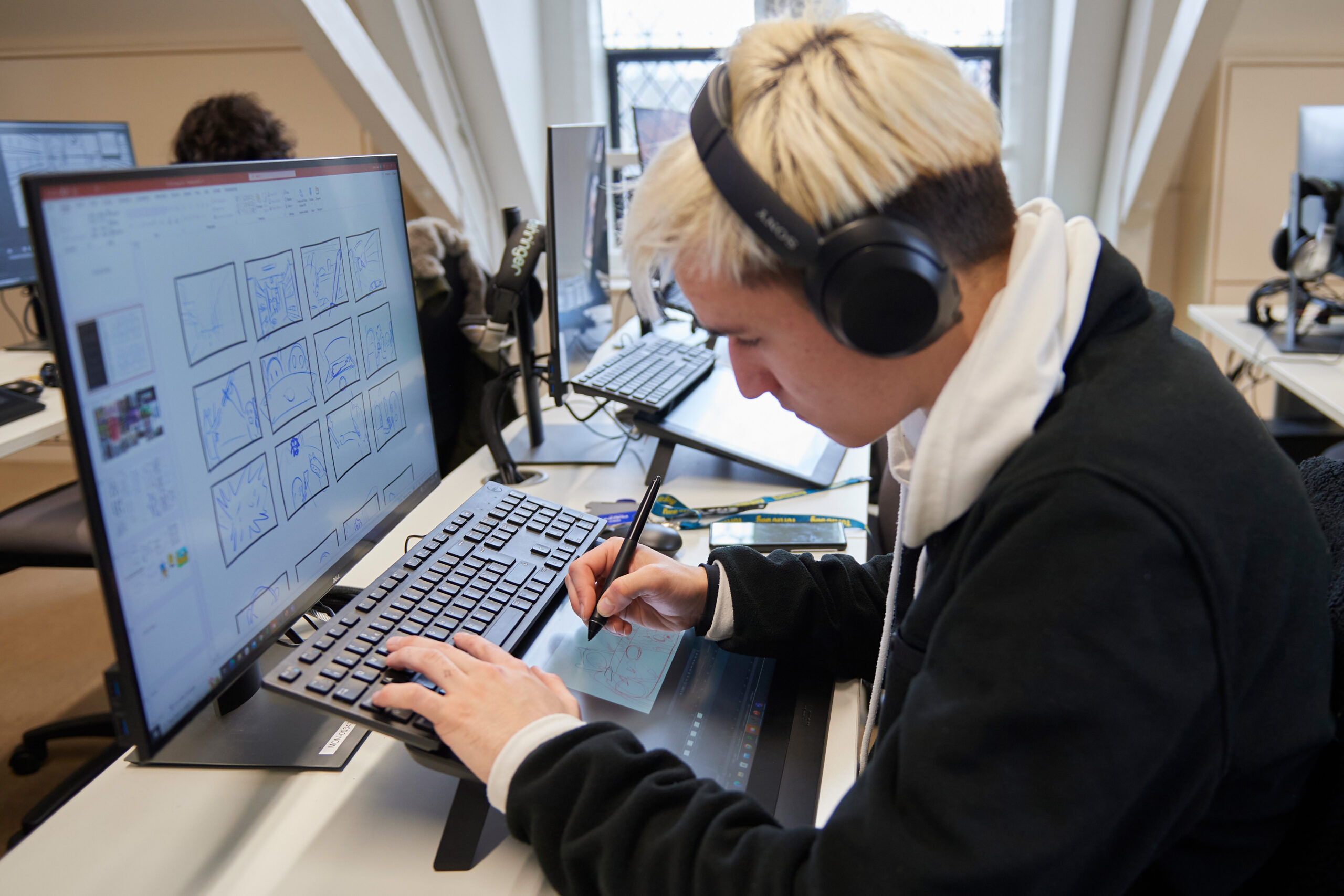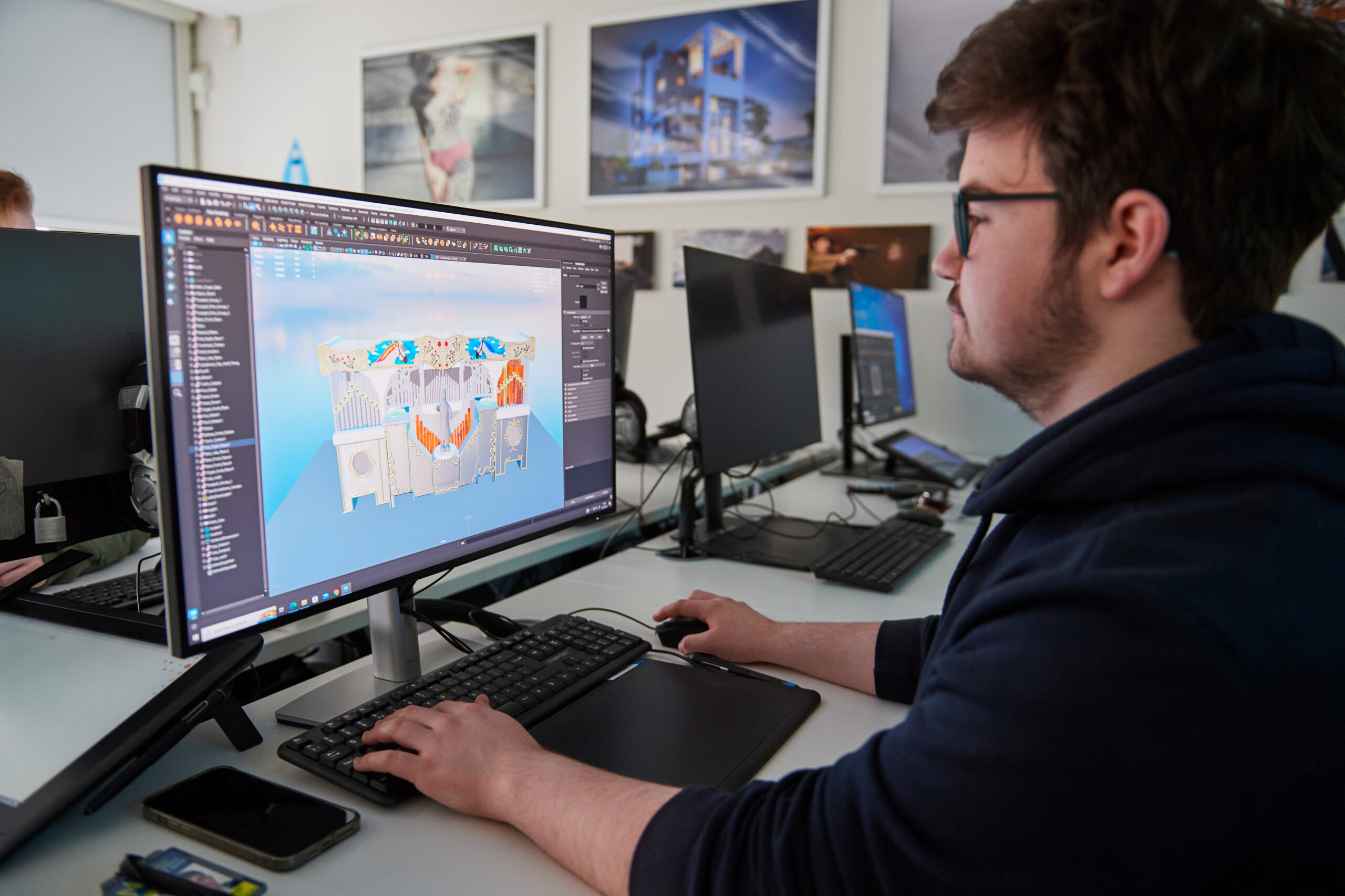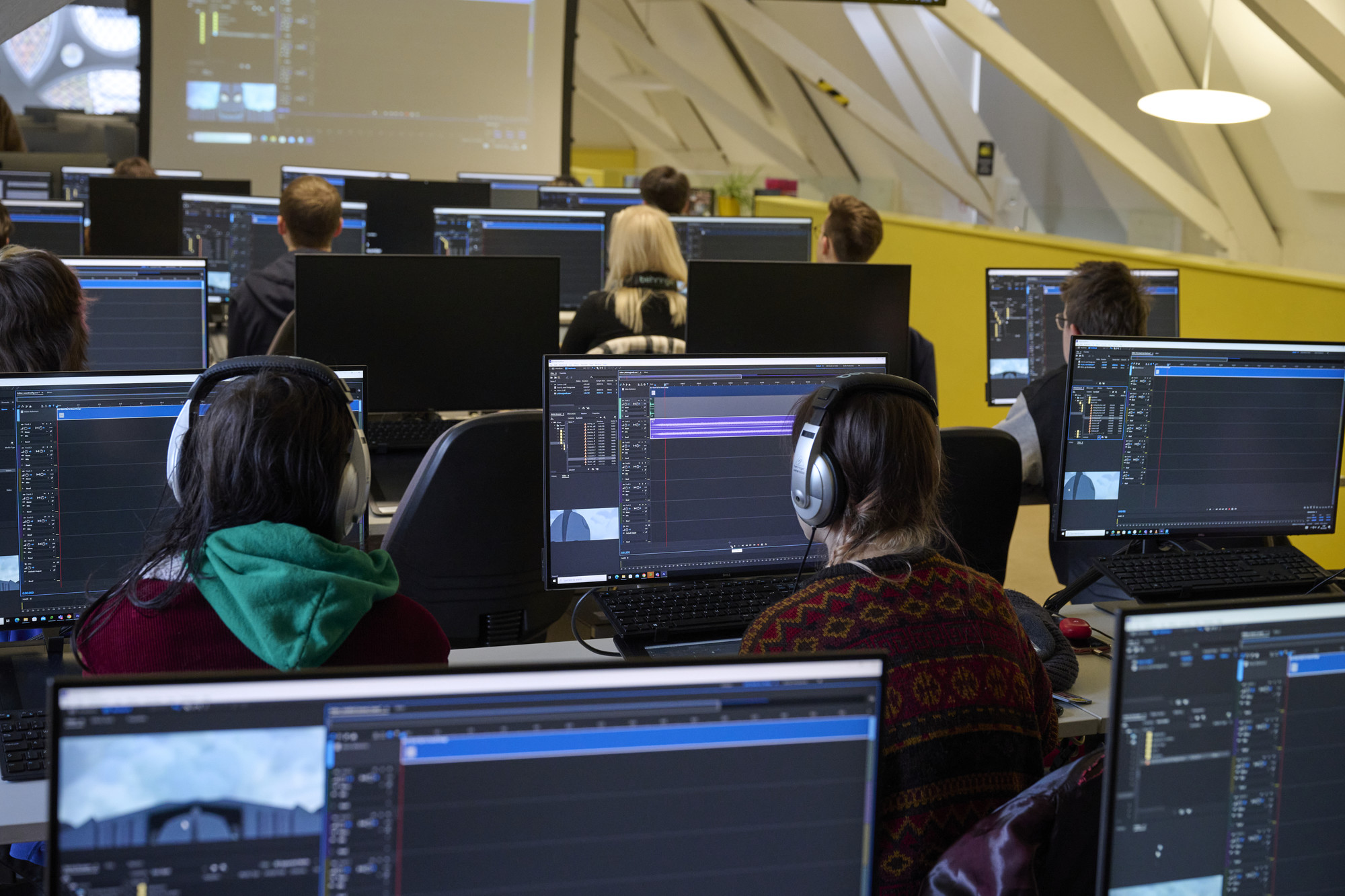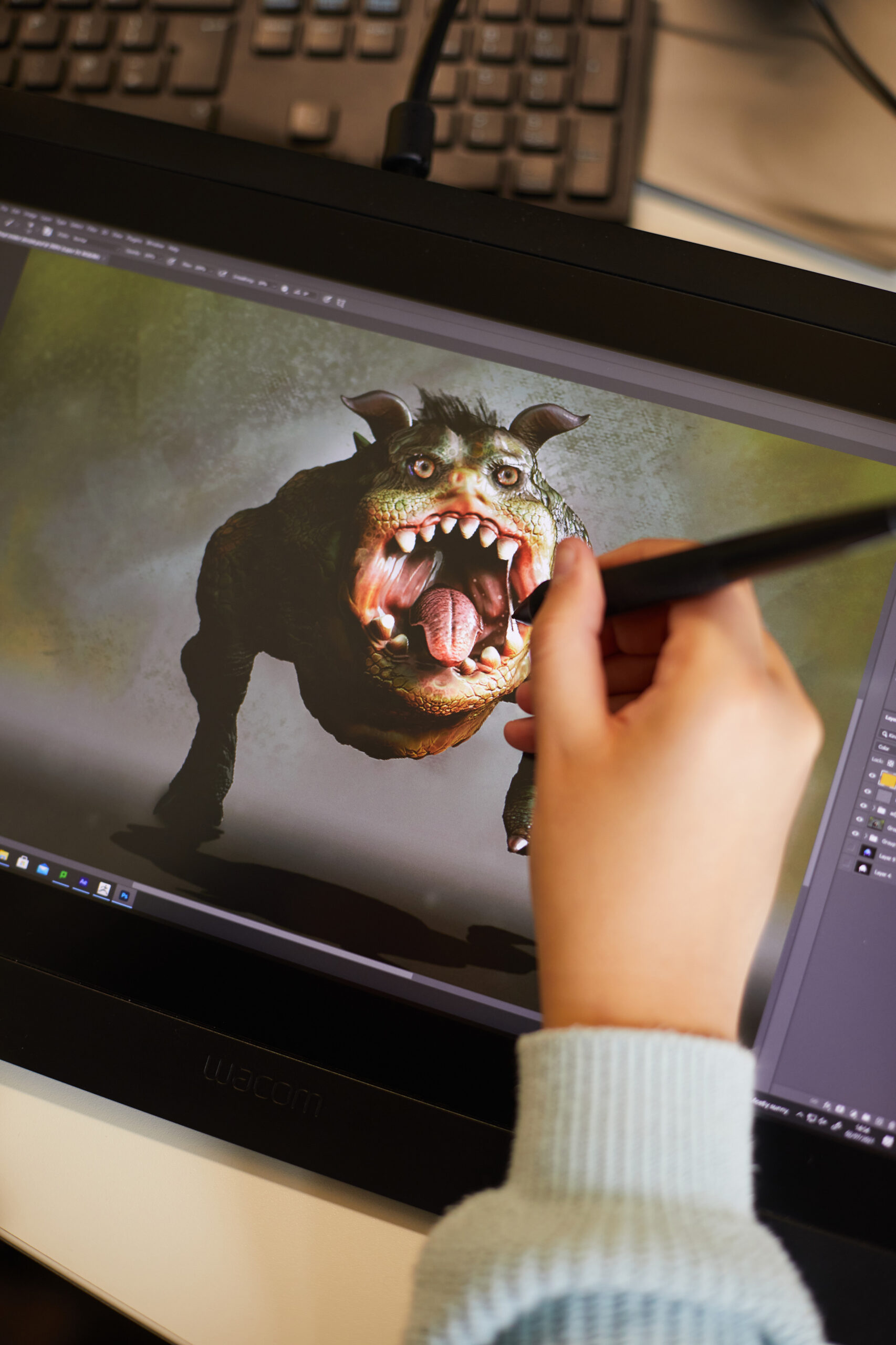
Animation MA
Extend your creative vision and shape the future of animated storytelling through innovative animation practices and critical engagement.
-
Course Duration
Full-time 1 year
-
Annual Fees
- Home (full-time) £11,000
- Overseas (full-time) £24,000
-
Course Start
September 2026
- How to Apply Request a prospectus (opens in a new window)
Our innovative MA in Animation is designed to develop your visual style to convey complex ideas clearly using a range of media. The course encourages you to explore fresh perspectives on storytelling and narrative, focusing on future-oriented outcomes.
The course emphasises the integration of new technologies with established practices, supporting your growth through a variety of projects that enhance both conceptual and practical skills. Supported by a team of professional animators and academics, you will explore new techniques, develop your interests, and exchange and discuss ideas. You’ll explore media processes with students from other media disciplines, gaining access to state-of-the-art resources and workshops.
By the end of the course, you’ll have an extended portfolio and a deep understanding of both independent and collaborative practices, effectively positioning you within the contemporary animation field. You’ll be encouraged to push boundaries and experiment to find your unique creative voice. You’ll explore meaningful themes and learn how to engage audiences through multidisciplinary approaches, addressing contemporary, social, cultural, and environmental issues.
Join us at Norwich and be part of an animation community that drives creative boundaries, embraces innovation, and impacts the world.
Why study with us
-
Advanced technical skills
Master a wide range of media and techniques, creating impactful animations that reflect your artistic vision.
-
Interdisciplinary approach
Collaborate with postgraduate courses in media and visual communication, enriching your educational experience through multidisciplinary engagement.
-
Professional-level resources
Access cutting-edge facilities, including animation labs, design studios, and licensed software to bring your creative ideas to life.
-
Ethical and inclusive research
Commit to ethical practices that prioritise accessibility, diversity, equality, and sustainability in animation.
-
Professional portfolio development
Create a strong portfolio that showcases your interests and prepares you for a successful career in animation.
-
Innovative problem-solving
Tackle complex visual and narrative challenges through project-based learning, encouraging original and inventive approaches to animation.
Course Details
This programme is a one-year course including 30 weeks of direct teaching time and a 15-week final project. You will need to complete five units and one 60-credit major project (180 credits in total). All units on the course are compulsory and must be passed in order to complete the award. If you study part-time your modules will be split across two years. Full course details, including aims and assessment criteria, will be provided in the course specification upon validation.
Core practice and context in Animation (60 credits)
This unit launches your master’s study experience at Norwich, immersing you in leading practices and emerging research within animation to enhance your understanding and knowledge in animation methodologies. You’ll develop skills in visual communication, personal approaches to narrative and storytelling, and using animation to convey complex ideas and messages. The unit covers narrative environments, animatics, character development, film language, motion graphics, emerging technologies (AR/VR), and time-based media. You’ll deepen your understanding of established and innovative techniques through research-led projects, promoting iterative experimentation and critical reflection. This process will strengthen your working methods and knowledge, situating your practice within broader conceptual and ethical frameworks.
Advanced technical skills in Animation (20 credits)
This unit focuses on the advanced technical skills essential for idea generation, problem-solving and practical development in animation practice. You will experiment with various media and processes (2D and 3D), enhancing your narrative and storytelling skills. Both individual projects and group collaborations will be explored, emphasising the importance of technical expertise and conceptual alignment. A research-led approach will introduce you to both established and emerging techniques. Through project work and briefs, you’ll explore innovative technical processes to enhance problem-solving capabilities and create advanced creative solutions. Content covers narrative development, character realisation, storyboarding, motion capture, and emerging technologies (AR/VR/AI). Through continuous technical experimentation and critical reflection, you will enhance your skills and working methods, incorporating social, political, and cultural perspectives to embrace animation as an experimental visual practice.
Dialogue, debate and domain knowledge in Animation (10 credits)
This unit is designed to encourage your exploration of leading practices and emerging research within animation through reflective analysis and interactive discussions. You will develop a critical understanding of your discipline within socio-economic, political, ethical, and cultural contexts, exploring the critical frameworks that underpin visual design practices. Key research themes include design history and theory, identity and representation, visual language, semiotics, aesthetics, and media theory. You will be supported in developing diverse research approaches, utilising discursive interaction to inform your inquiry methods, prompting you to interrogate the boundaries between animation and other communication disciplines.
Professional technical skills in Animation (20 credits)
This unit encourages your exploration with a range of professional-level technical skills essential for idea generation, problem-solving, and practical development in animation practice. You will experiment across a range of media, building on the skills and techniques covered in the ‘advanced technical skills’ unit. Through individual and group projects, you’ll refine technical processes and explore innovative solutions to enhance your creative capabilities. Unit briefs may include tasks focused on specific projects or collaborative work, emphasising the importance of technical expertise in supporting the theoretical and conceptual aspects of animation. Indicative content includes narrative development, character design, storyboarding, motion capture, 2D & 3D animation, sound design, and emerging technologies (AR/VR/AI). Individual and group projects will help you to use established and contemporary techniques to extend and explore your chosen area of expertise.
Advanced critical context in Animation (10 credits)
This unit deepens your understanding of leading practices and emerging research within and around animation. By developing effective research and reflective strategies, you will enhance your critical understanding of key methodologies and gain insights into creative communication within socio-economic, political, ethical, and cultural contexts. Engaging in rigorous analysis and interaction will strengthen your grasp of critical frameworks underpinning your discipline. Building on the ‘dialogue, debate, and domain knowledge’ unit, you will explore themes such as animation history, identity and representation, visual language, design psychology, semiotics, aesthetics, globalisation, and media theory. Research-led projects will help you to develop your overall creative persona and assist in developing strategies for conceptual and practical problem-solving, positioning yourself as a critically engaged and reflective practitioner.
Major project (60 credits)
This unit represents the culmination of your master’s study, where you will design, develop, and execute an individual or collaborative major project in animation. This process will consolidate your specialist knowledge and advanced communication skills, allowing you to plan and organise activities, time, and resources, while exploring innovative concepts with feedback from tutors and industry professionals. You will identify a research question and create a viable project to test your hypotheses, aiming for original outcomes. You will deepen your understanding of historical, theoretical, cultural, technical, and economic contexts, addressing social and environmental sustainability challenges. Identifying relevant industries, audiences, and stakeholders, you will situate your practice within regional, national, and international contexts. This project enables you to showcase your voice, demonstrate creativity, and develop technical skills that reflect your chosen pathway and express an original, personal and professional identity.
Download course specifications
Learning and teaching
The course is delivered through a variety of engaging learning and teaching methods.
-
Lectures
-
Seminars
-
Tutorials
-
Technical labs
-
Independent and group work
Assessment
Our assessment methods will vary based on the unit you choose and provide a comprehensive measure of your learning and progress. These methods may include:
- Critically reflective essay
- Course work
- Presentations
- Learning journal
- Reflective evaluation
- Body of creative work
- Reflective research report
- Team project evaluation
- Major project
- Supporting documentation

Typical career paths
Graduates of our MA Animation are equipped to navigate the increasingly technology-driven and interdisciplinary design landscape. Whatever your goals, this course will support your individual interests and specialisms and open more career opportunities in the dynamic fields of animation, film, and digital media. The skills and experience you gain will prepare you to excel across a range of creative industries.
This course prepares you for a career in a variety of disciplines related to animation, including:
- Stop motion animator
- 2D animator
- Set designer
- Puppet builder
- Lighting technician
- Compositor
- Producer
- Editor
- Storyboard artist
- Character designer
The UK’s creative sector is thriving, contributing £111.7 billion annually to the economy and offering over 2 million jobs.
Department for Digital Culture Media and Sport (DCMS)
Entry Requirements
Entrants should normally have achieved a BA (Hons) / BSc Degree of 2:1 or above (or its equivalent), in advertising, art or design (such as graphics, photography, film studies), psychology, marketing, business, english, sociology, or philosophy.
Those with industry experience or relevant skills from non-traditional backgrounds are encouraged to apply, including individuals currently employed. If you’re unsure about your eligibility, please contact us for guidance before applying.
English language requirements (International/EU)
If English is not your first language, IELTS 6.5 (or equivalent) is required, with a minimum of 5.5 in reading, writing, listening, and speaking. we also accept other English language qualifications.
International Qualifications
We accept a wide range of qualifications from all over the world.
For information on entry requirements from your country, see our international pages.
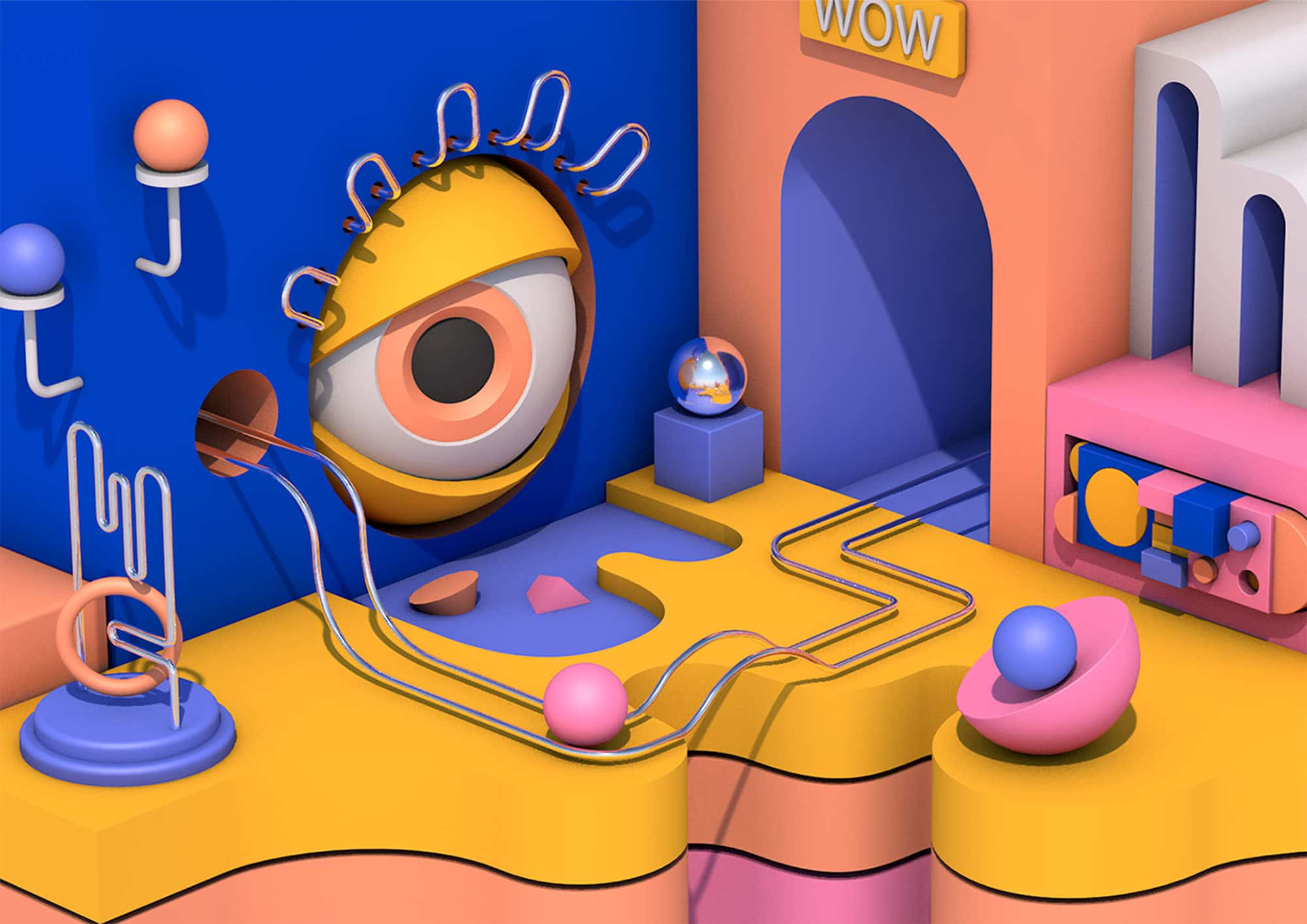
Fees and funding
Home
Tuition fees for the 2026/27 academic year
- Full time: £11,000
The level of fee that you will be asked to pay depends on whether you’re classed as a UK
(home) or international student. Check your fee status.
Fees for subsequent years
The rules for inflation on fees in subsequent years depend on the type of fee status and level
For Home and overseas postgraduate degree students starting in 2026, fees will remain the same for each year of your course.
Funding your study
Depending on your circumstances, you may qualify for a bursary, scholarship or loan to help fund your study and enhance your learning experience. Find out more about scholarships and funding.
International
Tuition fees for the 2026/27 academic year
- Full time: £24,000
The level of fee that you will be asked to pay depends on whether you’re classed as a UK
(home) or international student. Check your fee status.
Fees for subsequent years
The rules for inflation on fees in subsequent years depend on the type of fee status and level
For home and overseas postgraduate degree students starting in 2026, fees will remain the same for each year of your course.
Funding your study
We offer a range of scholarships and bursaries for international students. To find out more and see if you’re eligible, please visit the scholarships for international students page.
Additional costs
Your course fees cover the cost of studies, and include loads of benefits, such as the use of our library, support from our expert employability team, access to workshops and free use of the IT equipment across our campuses. There are also other costs which you may need to consider.
How to apply
Home
Applications to our postgraduate courses should be made directly to Norwich University of the Arts using a Postgraduate Application Form.
Applications should be returned to admissions@norwichuni.ac.uk
Please see our Terms and Conditions and Admissions Policies for further details.
International
Postgraduate applicants can only apply directly by completing the below online application form or emailing the downloadable form to ioadmissions@norwichuni.ac.uk
International students requiring a visa should apply as soon as possible in the year they wish to start. Email our International Team for more information. Please see our Terms and Conditions and Admissions Policies for further details
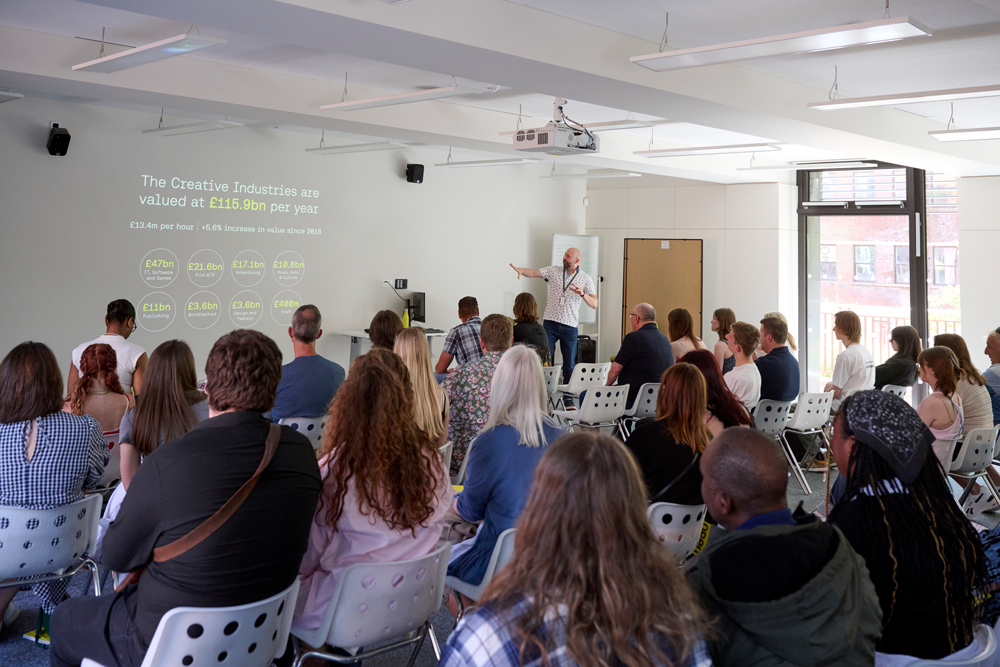
Latest news
-
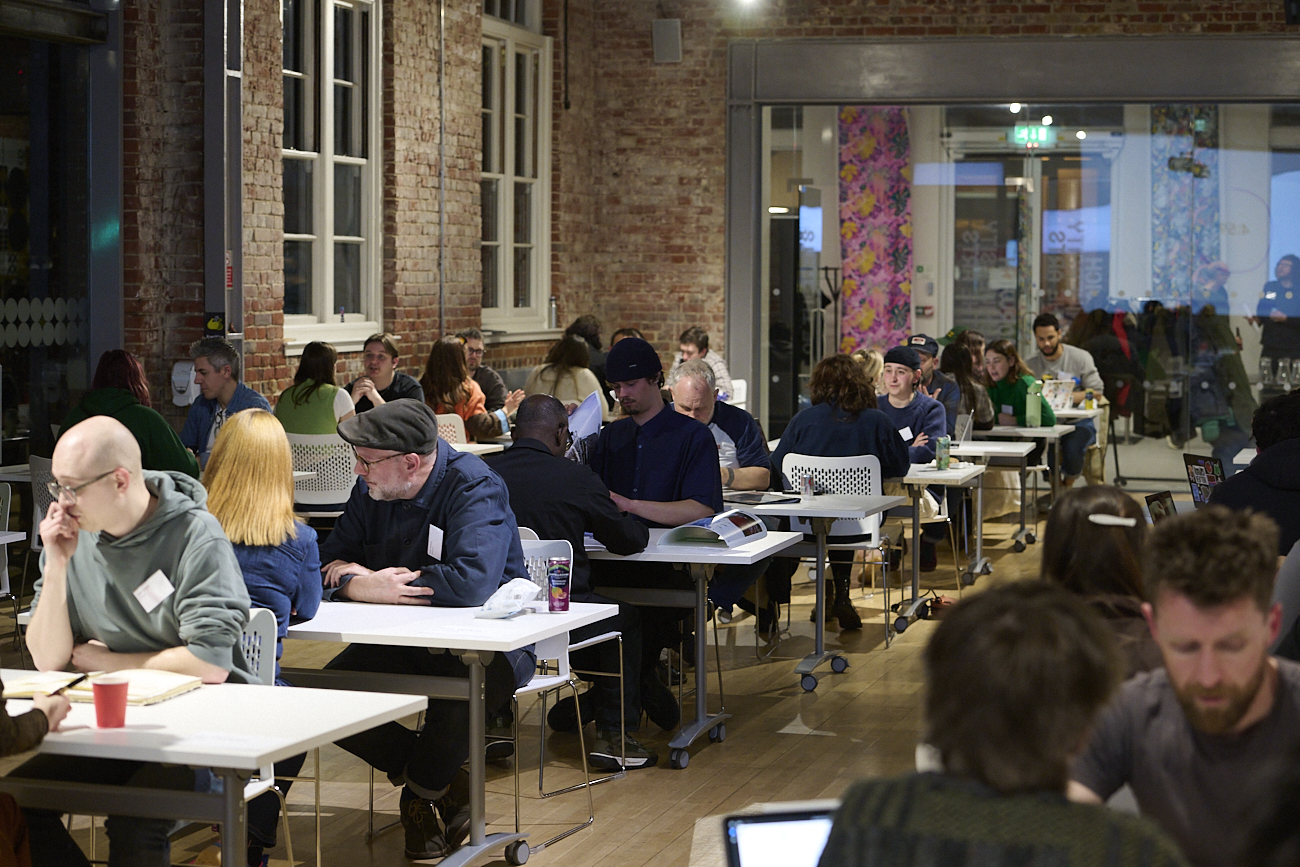 Employability •
Employability •Norwich University of the Arts celebrates 10 years of the Big Book Crit
Hundreds of Norwich students have shared their work with leading creative professionals over the last decade. -
 East Gallery •
East Gallery •Announcing the East Gallery Fellows 2025-2026
Norwich University of the Arts is pleased to announce the selected awardees of this year's East Gallery Fellowship. -
 BA Business Management •
BA Business Management •Dean of Creative Education Awarded Prestigious Principal Fellowship from Advance HE
The University is delighted to announce that Hilary Carlisle, Dean of Creative Education and Professor of Design, has been awarded Principal Fellowship of the Higher Education Academy (PFHEA) by Advance HE -
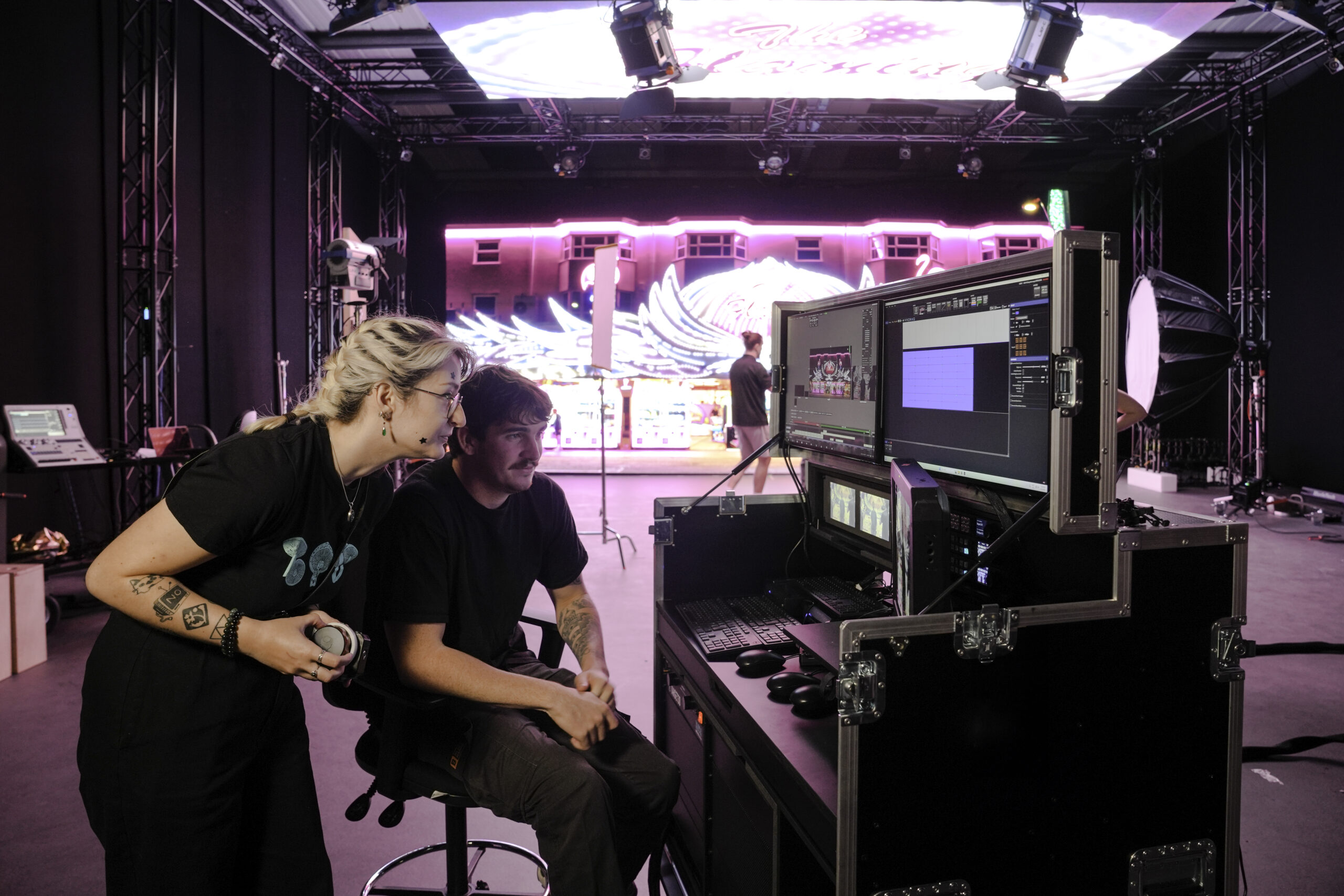 BA Degree •
BA Degree •Norwich University of the Arts to Host ELIA Academy 2027
Norwich University of the Arts is delighted to announce that it has been selected as the host institution for the ELIA Academy 2027. -
 BA Business Management •
BA Business Management •In conversation with Norwich’s newest lecturers in Marketing and Business Management
We joined Norwich's newest lecturers, Stephen Balmer-Walters and Laurie McAllister, to find out more about the University's Marketing and Business Management courses. -
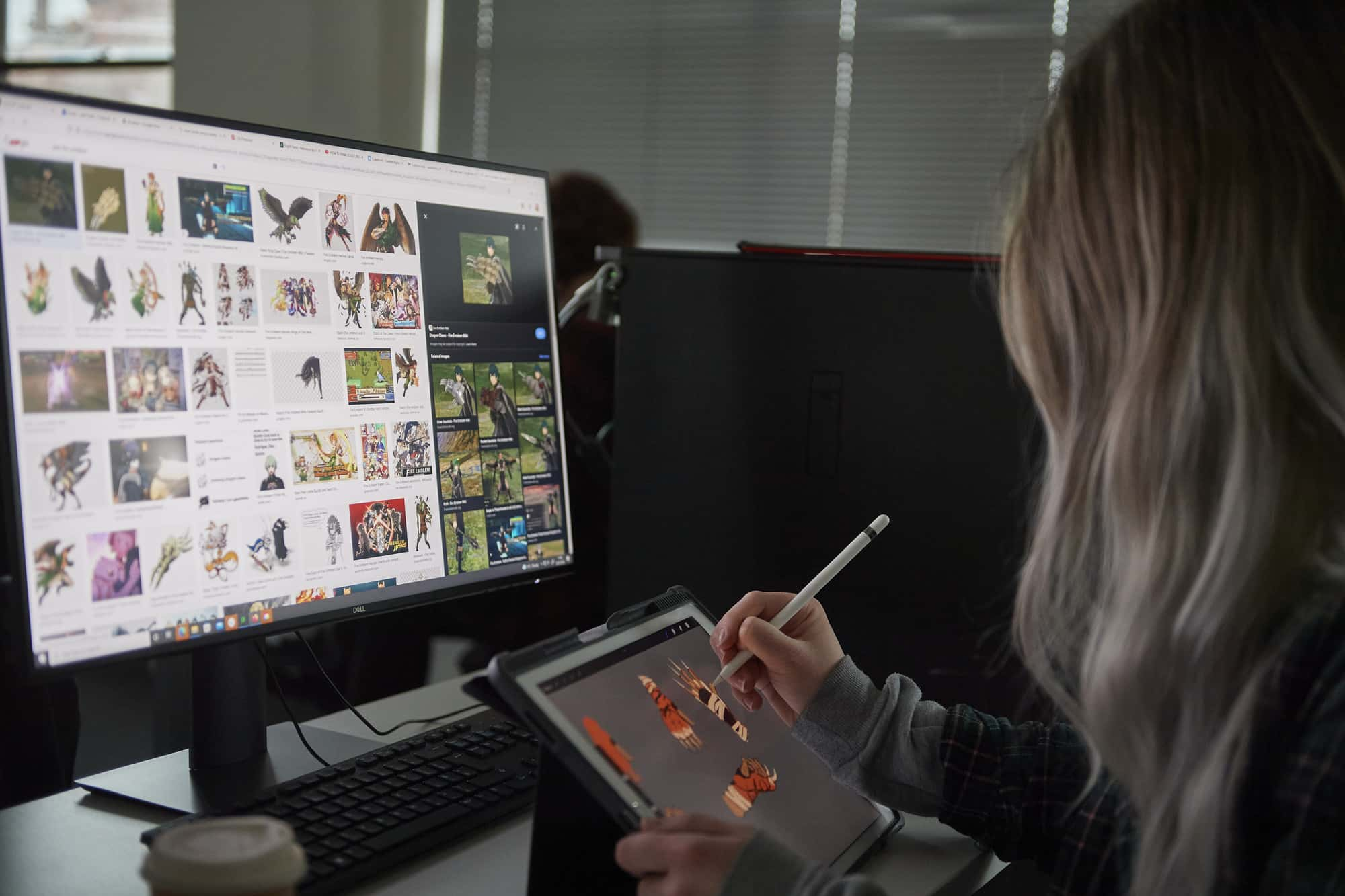 BA Games Art and Design •
BA Games Art and Design •East of England set to become UK’s next Games Cluster, says landmark report
A major new report is calling for the creation of a Games Cluster for the East of England — positioning the region as a national leader in creative technology and immersive media. -
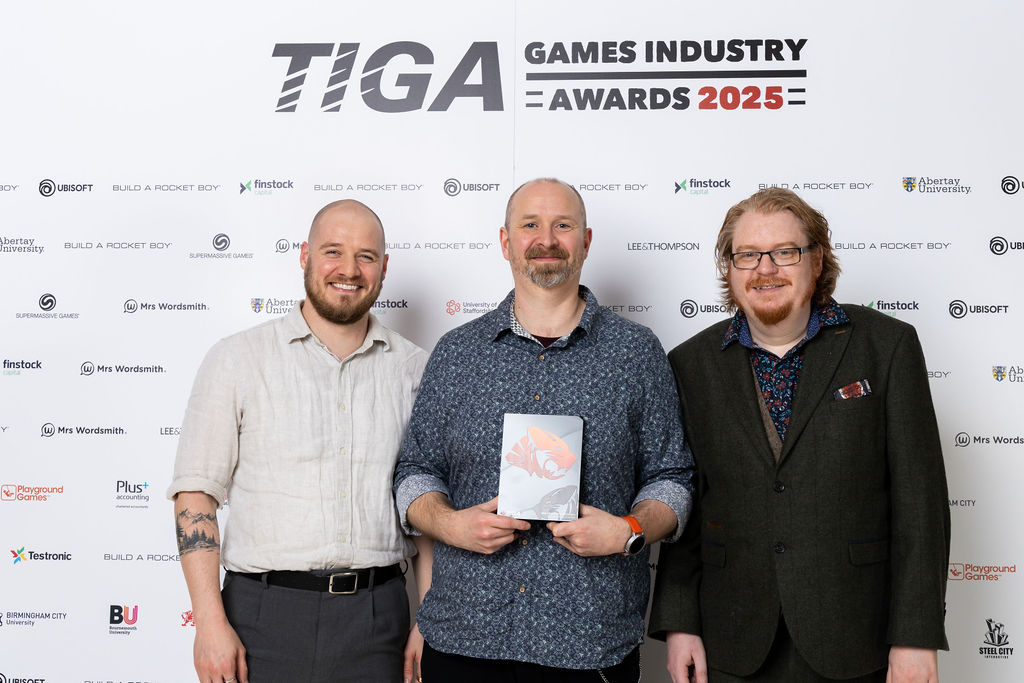 BA Games Art and Design •
BA Games Art and Design •Norwich awarded Best Education Initiative at the TIGA UK Games Industry Awards
TIGA, who represent the UK video games industry, have recognised the University’s commitment to graduate success and industry-focused learning in their 2025 awards. -
 BA Animation •
BA Animation •Cutting edge Sony Virtual Production Studio puts Norwich on the map for the future of film and gaming
Norwich University of the Arts and Sony open new landmark facility for students, creators and the community. -
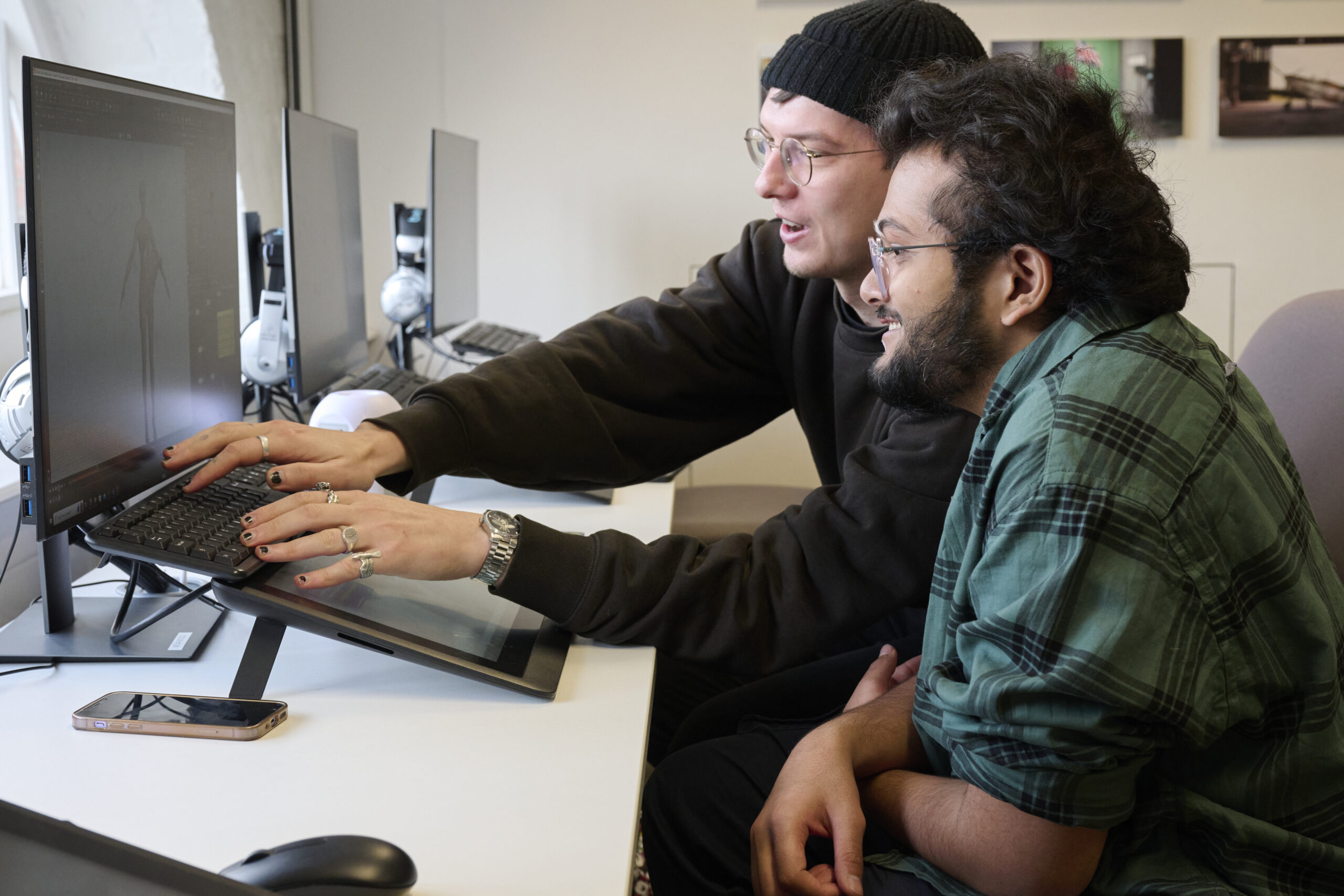 BA Animation •
BA Animation •Norwich named top UK university for production excellence in visual effects
The University has been placed in three categories in the 2025 Rookies Global School Rankings, including the top five for Production Excellence – Visual Effects. -
 BA Photography •
BA Photography •Entries open for Norwich's 2026 Beyond the Frame photography competition
Entries are now open for our annual photography competition, open to students aged 11 to 19 around the world. -
 BSc Degree •
BSc Degree •Norwich University welcomes new academics to its Psychology and Computer Science courses
Lyndsey Wallace joins the University as Senior Lecturer for BSc (Hons) Psychology, with Jawwad Chattha joining as Course Leader for BSc (Hons) Computer Science. -
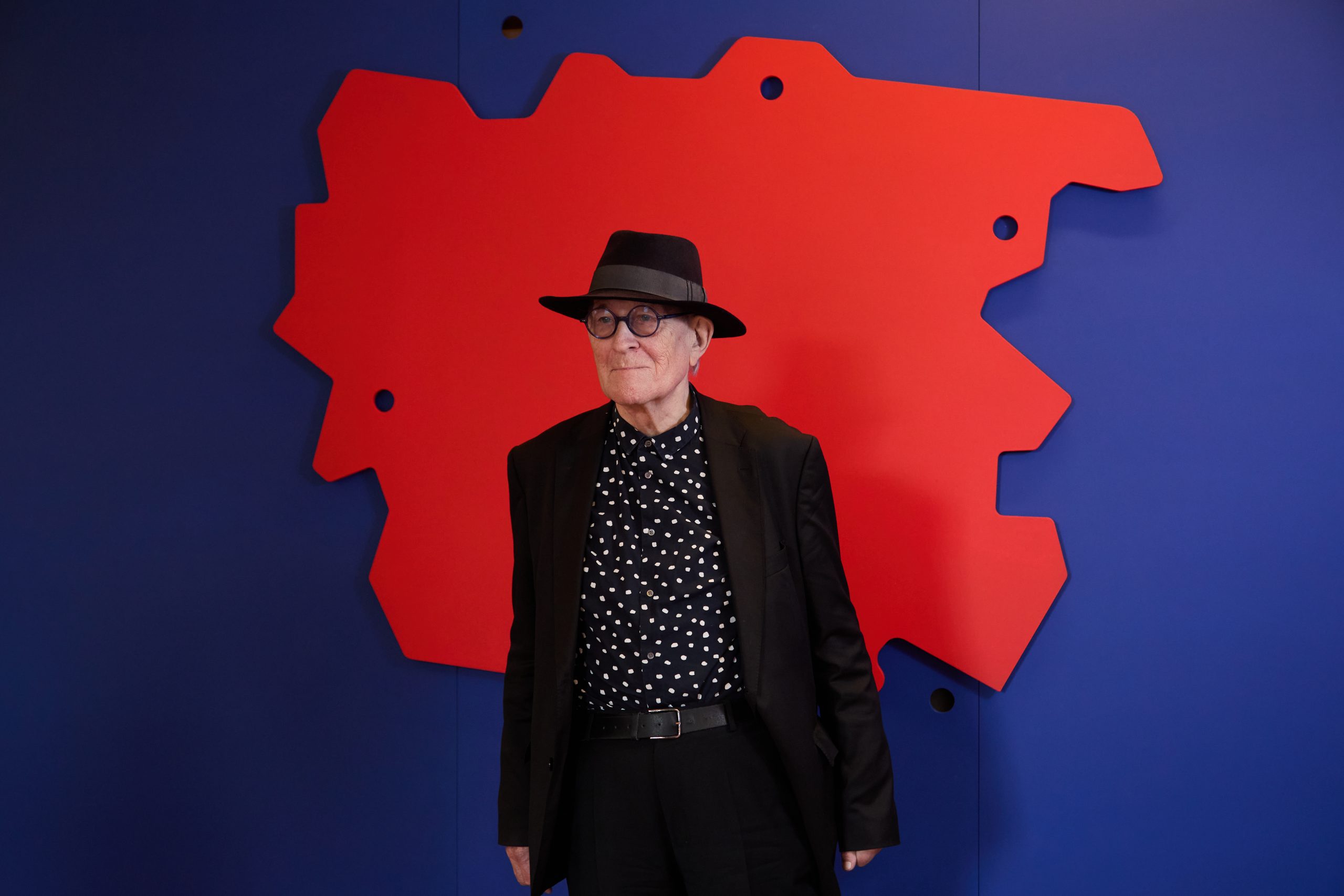 BA Architecture •
BA Architecture •Norwich University of the Arts presents the Peter Cook: Wonder Hub
Norwich University has launched the Peter Cook: Wonder Hub, a vibrant and interactive space for thinking, making, showcasing and debating the creative arts. -
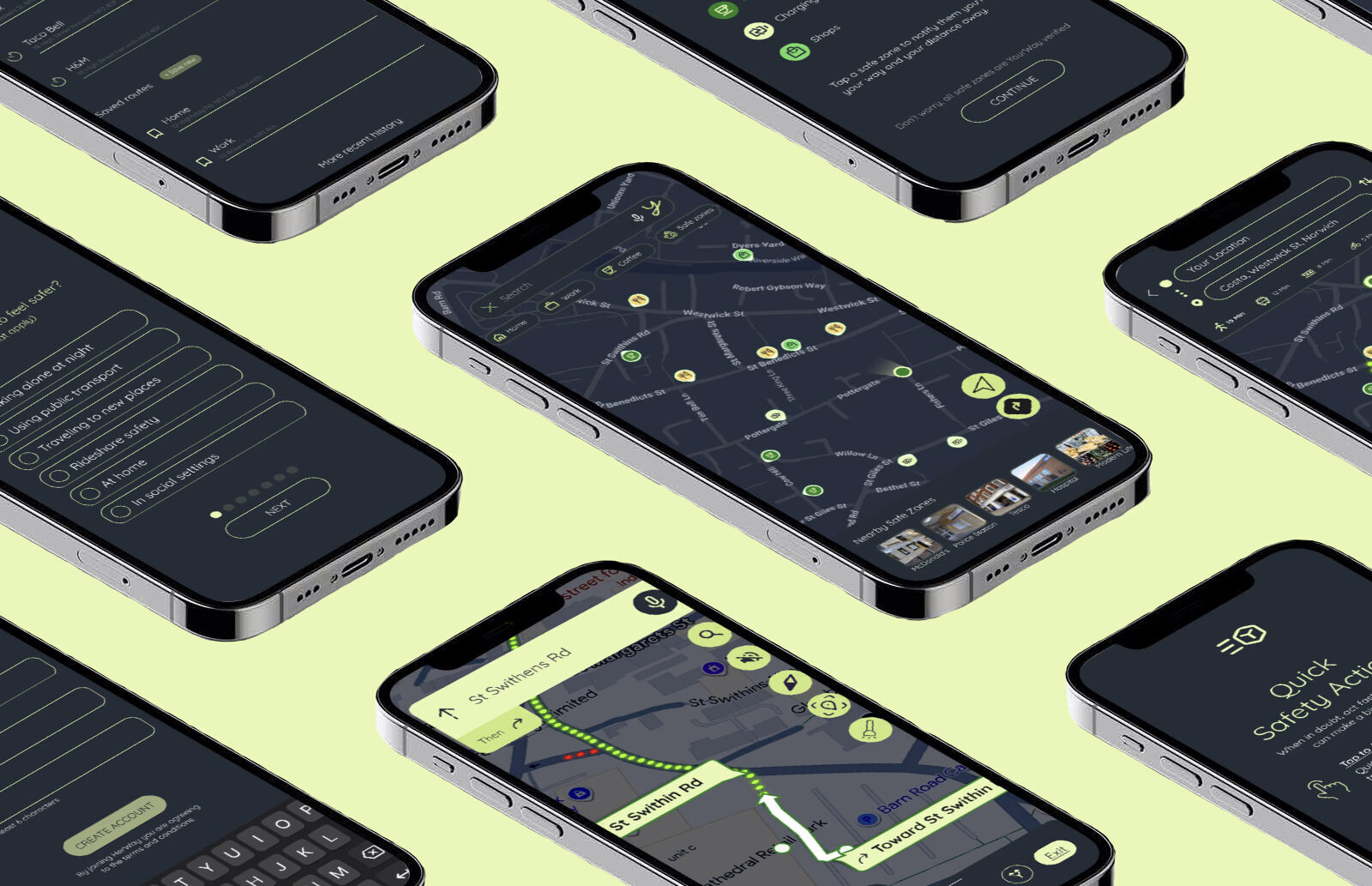 BA Graphic Communication •
BA Graphic Communication •Norwich students celebrate success at 2025 Creative Conscience Awards
Students from Norwich University of the Arts have been recognised across categories in this year’s awards, which showcase work focusing on social or environmental impact -
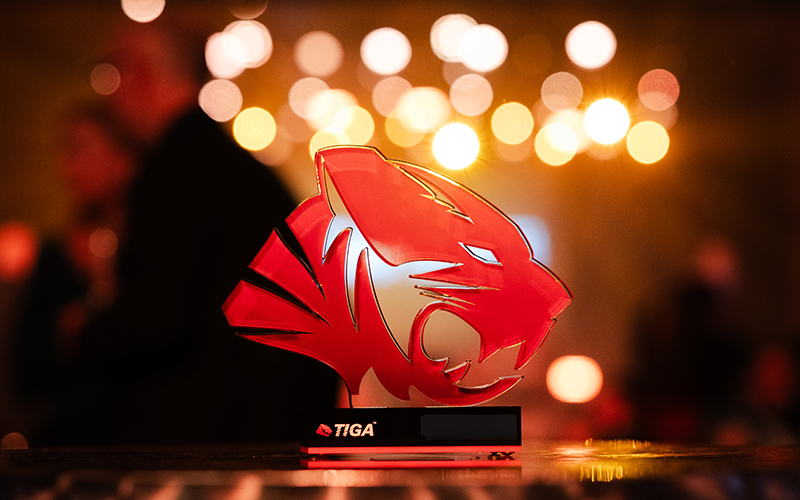 BA Games Art and Design •
BA Games Art and Design •Norwich graduates recognised at TIGA UK Games Education Awards
Charlie O'Shea, BA (Hons) Games Art and Design has been named 'Outstanding TIGA Graduate of the Year: Designer' -
 BA Film and Moving Image Production •
BA Film and Moving Image Production •Dear future international students – Diya Vaya, BA (Hons) Film and Moving Image Production
Diya writes about the experience of moving to Norwich from Nairobi, and her advice to future international students. -
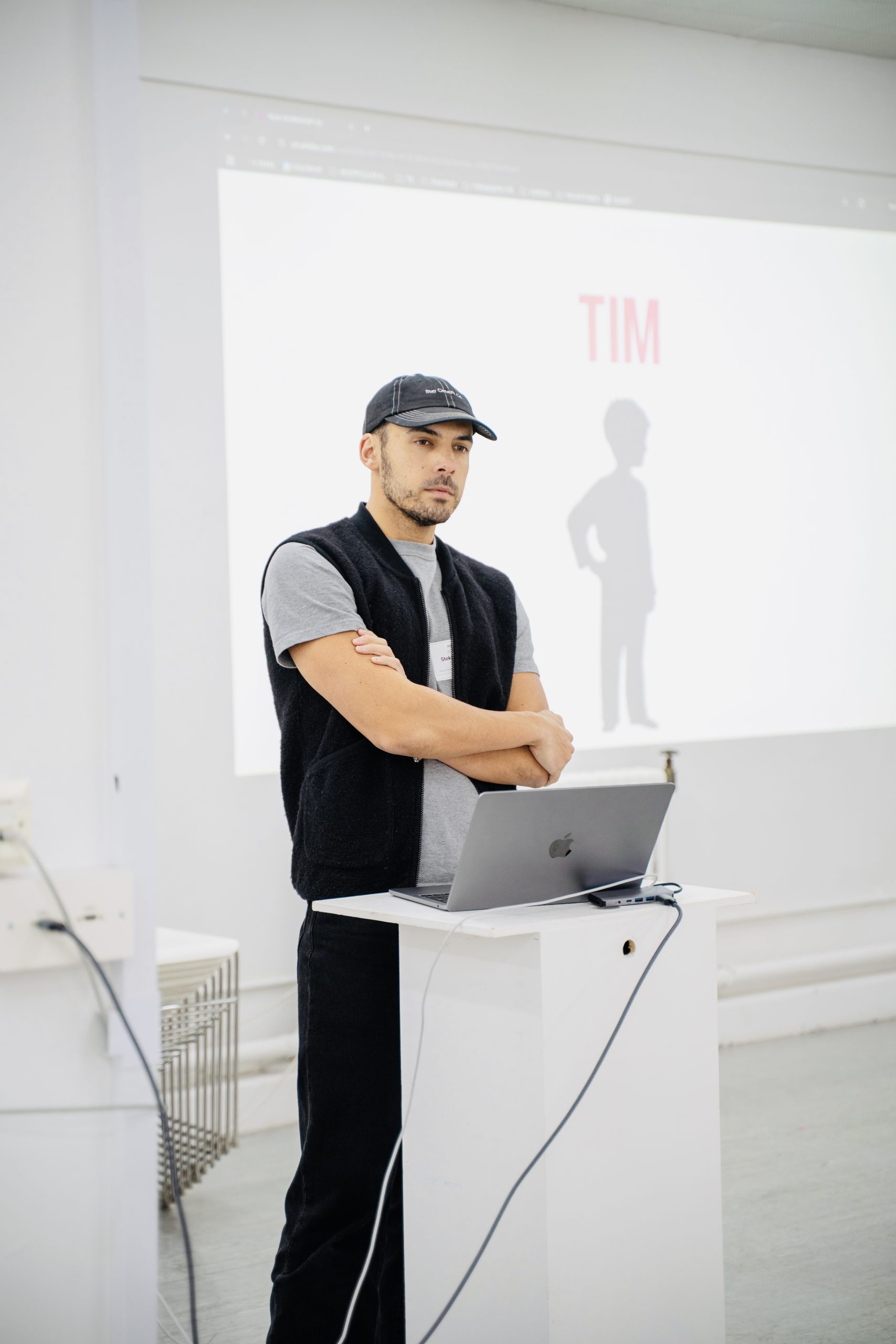 Course •
Course •Inside Interchange Week with Stokely Howard of Trendy Grandad
Stokely Howard, Co-Founder and Creative Director of video production company Trendy Grandad, shares his reflections on Norwich’s cross-course collaboration week.
Related courses
Discover our courses and take the first step towards unleashing your potential
-
Visit the Advertising MA course page

- Filter courses by study level: Postgraduate
- Filter courses by duration: Full time
- Filter courses by start month: September
- Filter courses by subject: Advertising and Marketing
Advertising MA
Discover how to apply strategic and creative thinking to create unforgettable brand campaigns that shape the future of advertising and communication design.
-
Visit the Illustration MA course page
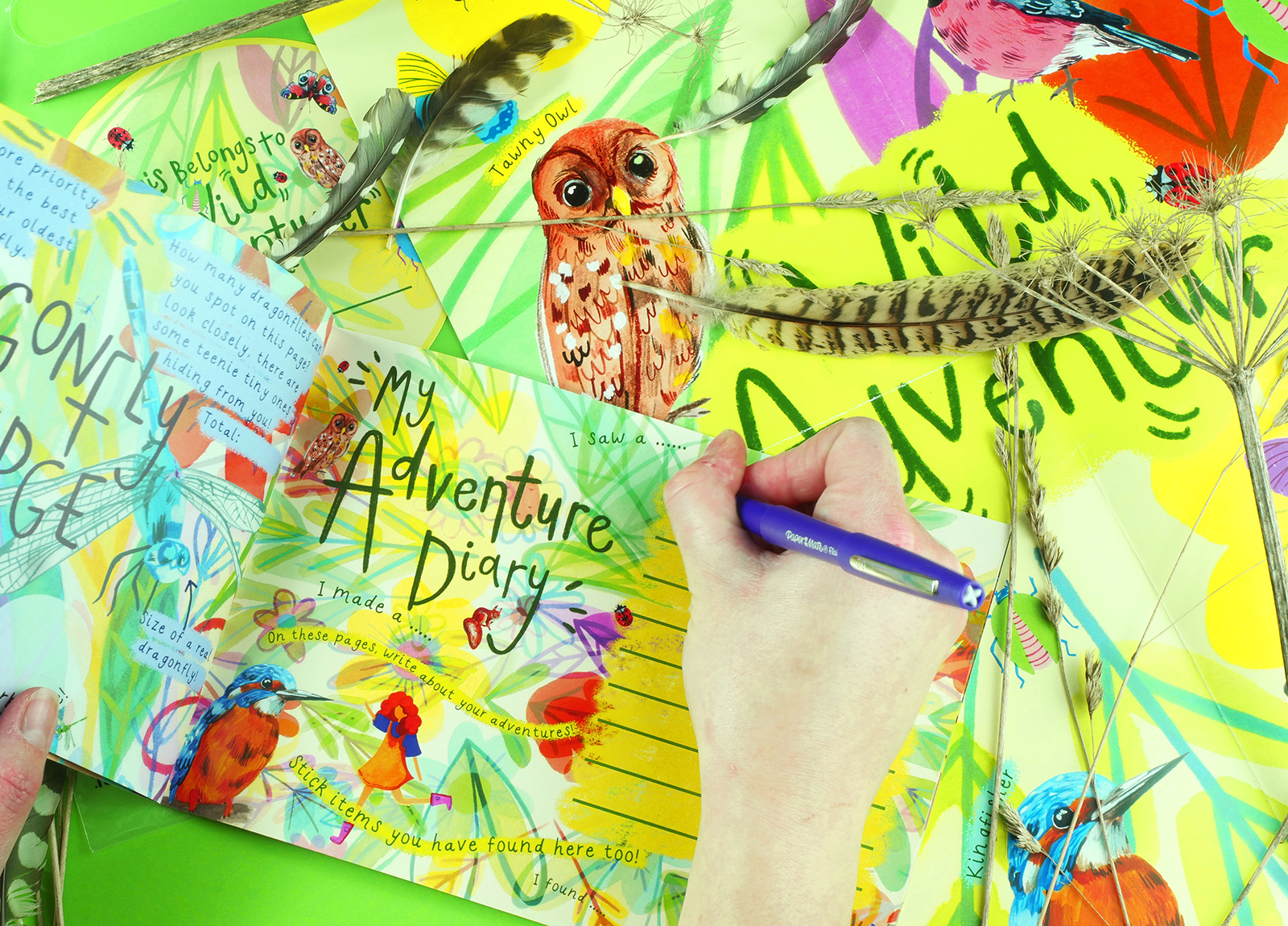
- Filter courses by study level: Postgraduate
- Filter courses by duration: Full time
- Filter courses by start month: September
- Filter courses by subject: Illustration
Illustration MA
Develop and evolve your unique visual language to challenge conventions and expand the practice of contemporary illustration.
